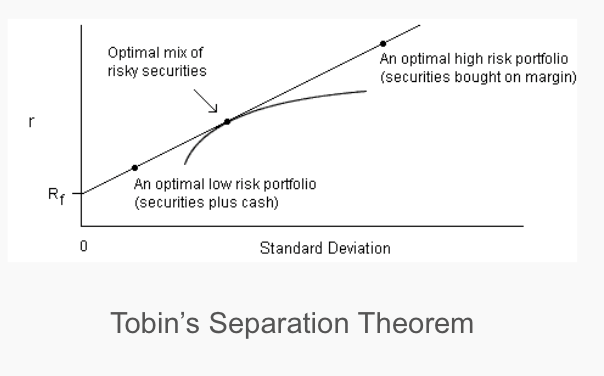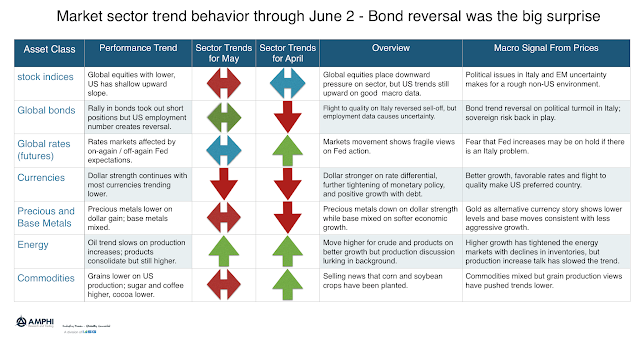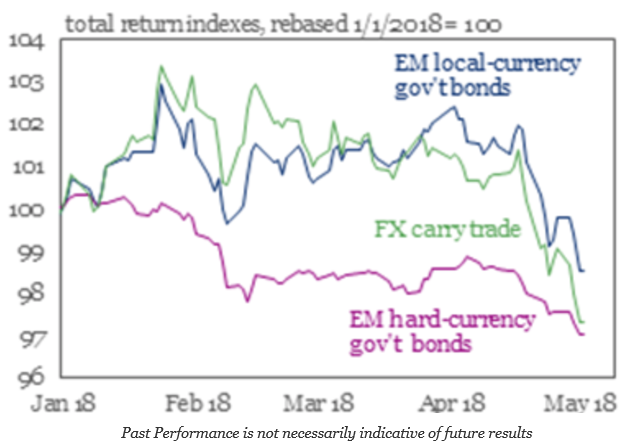Category: Uncategorized
Ride the Trend, but Remember What Is Possible
“I am not an optimist. I am a very serious possibilist.” – late statistician Hans Rosling.
“I am a trend-follower for both price and fundamentals. I am also a very serious scenario realist.”
How do investors reconcile potential storm clouds with optimistic trends in markets. There is ongoing information of long-term economic problems from a wide variety of sources today, yet many markets have continued to move higher and followed trends. There often seems to be disconnects between long-term peril or risks and shorter-term optimism. Some says this is the essence of a bubble market, a disconnect between price and fundamentals, yet avoiding trends based on yet to be realized threats can easily cause investors to avoid profitable opportunities.
Active Management Should Work Because Active Managers Work Hard – You Are Committing a Fallacy
Which is more likely? A manager who has successful returns, or a manager who has successful returns and gets up early, works hard all day, and spends half the night reading current research. Which one will you choose to run your money?

Tobin’s Separation Theorem – It Can Be Applied Anywhere
One of the greater principles of investment finance is Tobin’s separation theorem which is a powerful simple tool that can be used for any investment portfolio, but is especially useful when thinking about managed futures and alternative risk premiums. (Robin Powell reminded me of Tobin’s contribution in his essay, Can you really stomach the risk you’re taking?) There is a tremendous amount of useful investment advice through just applying the simplest of concepts.

The “Hedgehog and the Fox” Revisited – Have Managers with Big Ideas, But Diversify
The Greek poet Archilochus wrote, “The fox knows many things, but the hedgehog knows one big thing.”

Go Back to Basics with the Efficient Market Hypothesis – Think of it as a Base or Prior
The Efficient Market Hypothesis… has two components that I like to refer to with the terms No Free Lunch and The Price Is Right. The No Free Lunch component says that it is impossible to predict future stock prices and earn excess returns except by bearing more risk. The Price Is Right component says that asset prices are equal to their “intrinsic value,” somehow defined.
– Richard Thaler, “From Cashews to Nudges:The Evolution of Behavioral Economics”, American Economic Review 2018

Risk Preferences are not Stable – The Major Take-Aways
An important problem in finance is trying to properly incorporate risk preferences when forming portfolios. This is especially true if risk preferences are not stable. Yet, we have increasing evidence that risk preferences do change over time. (See article “Are risk preferences stable?” by Hannah Schildberg-Horisch in the Journal of Economic Perspectives Spring 2018 and illustration below.)

What Affects My Sleep This Week – DB, Brazil, and CMBS
Historian Deirdre McCloskey says, “For reasons I have never understood, people like to hear that the world is going to hell.”
John Stuart Mill wrote in the 1840s: “I have observed that not the man who hopes when others despair, but the man who despairs when others hope, is admired by a large class of persons as a sage.” from Morgan Housel “The Psychology of Money”

Trends Dominated by Bond Reversal, But Not Clear the Shock Rally Will Continue
I have always thought that the simple physics analogy that a market at rest will stay at rest and a market in motion will stay in motion is apt for trend-following. Trends will change when there is a shock or catalyst that will change the underlying fundamentals. Trend-following does not require knowing all of the reasons for why a trend is happening or why it may stop. Trend-following only requires that a signal is extracted and followed until price dynamics tell you otherwise. The success with trend-following is driven by the fact that trends last longer than expected. They last longer because most new information is trend reinforcing. Fundamentals do not generally change quickly. Nevertheless, loses will occur when new information causes an expectations reversal. Expectations may change more frequently than fundamentals.

Painful May Performance for International Equity and Bond Investing Requires More Caution with Diversification
May saw a set of return reversals with bonds posting gains on flight to quality while international markets saw strong return declines. Selected country equity declines were very strong based on increased political risks. It was a good month for those cautious and focused on US smaller cap names.
Noise Versus Bias – We Focus on Biases, But it is the Noise that Hurts Us
“We have too much emphasis on bias and not enough emphasis on random noise”
– Dan Kahneman Speaking at the Kahneman-Treisman Center for Behavioral Science and Public Policy
Using Scenario Analysis to Help with Asset Allocation – A Simple Solution to a Complex Problem
The reason for asset allocation scenario analysis is simple. There is a whole crowd of investors who do use or are uncomfortable with formal decision-making employing optimization. Quantitative asset allocation models like Black-Litterman, while elegant in theory, have not caught-on with many who are on the frontline of asset allocation work. Running scenario analysis provides a useful thought experiments tool to help refine asset allocation choices.

Correlation Changes across Stocks – An Important Risk for All Portfolios
The average correlation across stocks (intra asset class) has important implication for portfolio construction and for active management. The chart below from Wisdom Tree shows average stock correlation since the Financial Crisis. It has been subject to sharp increases followed by declines. Our general view, consistent with this data, is that if there is a single factor macro event, there will be a corresponding increase across all stocks.

EM Vulnerable to Shocks? “Taper Tantrums” and Getting Ahead of the Curve
Emerging market stocks and bonds are facing difficult times in 2018. Emerging markets may have looked like potential outperformers at the beginning of the year, but they have now fallen below respective US stock and Treasury indices. This sell-off has been further enhanced by the negative economic events in Argentina. Higher volatility, rising interest rates, […]